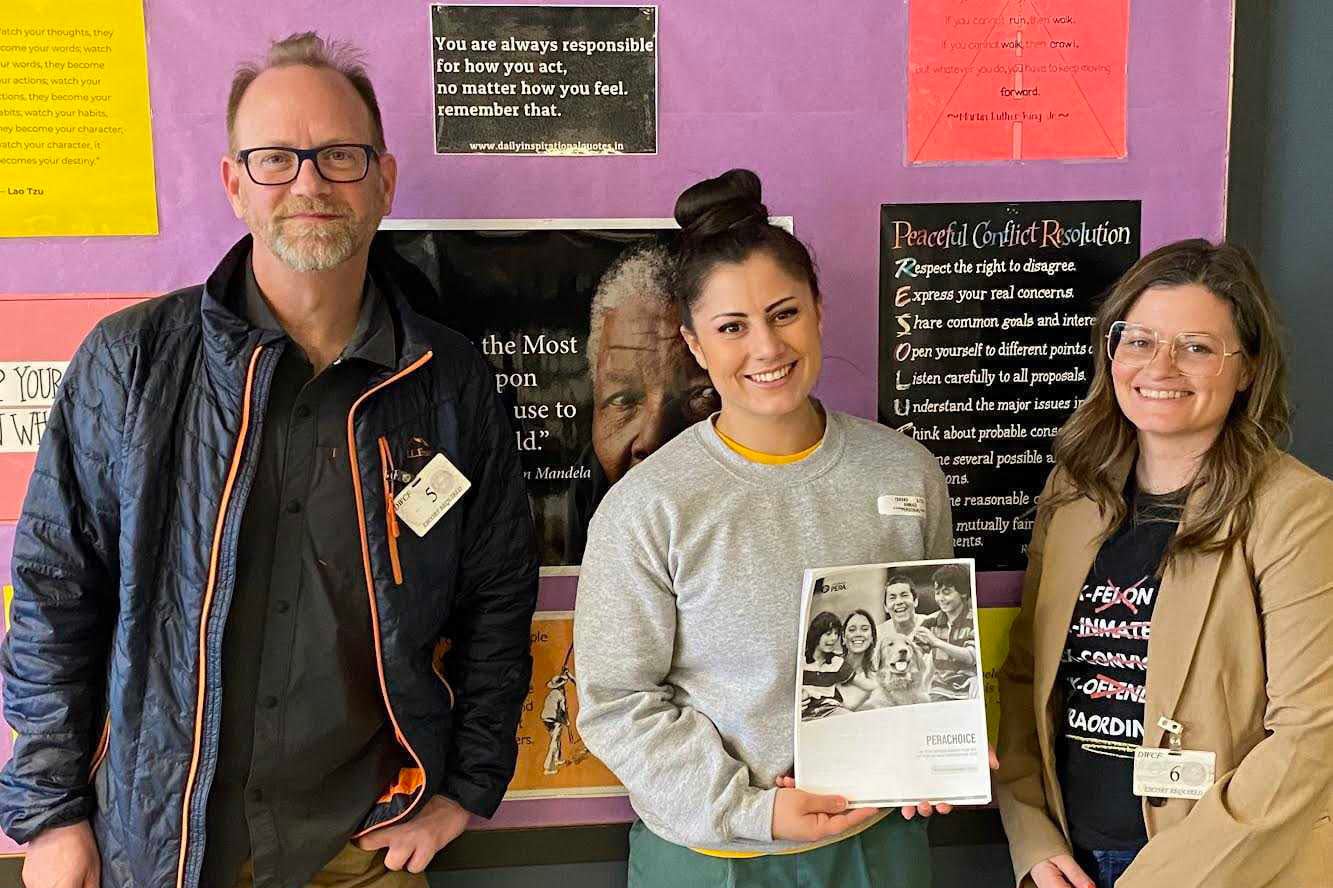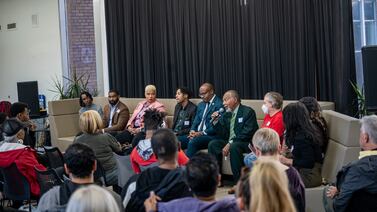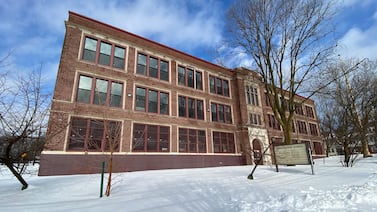This story was reported by Open Campus and is republished with permission.
Twenty women at Denver Women’s Correctional Facility will be part of a new bachelor’s degree program later this month.
Students in the program, run by Adams State University, will be able to choose between a sociology or business track. The program gives a unique opportunity to women in the state, something that educators and correctional staff say they hope to see more of. Women make up 8% of Colorado’s incarcerated population, but this is the first four-year degree available in the state’s prisons for women.
The program is also unique in the country because of one of its new professors.
Serena Ahmad, who holds a law degree from University of Denver and is serving a 14-year sentence at Denver Women’s, will be teaching in the program, making her the first incarcerated woman in the U.S. to teach as an adjunct professor at a women’s facility. Ahmad will teach a course in business law this summer. In the future, she’ll also be teaching criminology.
She’s excited about the opportunity, but gets anxious when she hears someone say the word “first.”
“Being the first of anything is always going to have a unique pressure, and that what I do is going to reflect on every single woman that follows me,” she told Open Campus during a video interview on Zoom. “The nervousness comes when I sit down and think about it. But when the greater goal is the success of incarcerated women and minority women, that sounds far more motivating than my fear or nervousness.”
‘What you’re doing is going to change the world of women’s prison education’
Earlier this year, David Carrillo became the first incarcerated professor in the country to teach students also inside. Carrillo was released at the end of January after Colorado Gov. Jared Polis granted him clemency in part due to his work as an educator at the Alamosa-based Adams State.
Besides teaching in person at the women’s prison, Ahmad will teach a virtual class for the men studying with Adams State at Colorado Territorial and Bent County, a private prison.
Ahmad said that she’s trying to build flexibility into her course design given the frequent disruptions that can happen in a prison environment. “Sometimes we might get locked down, or there’s a power outage,” she said. “Various things will happen, which will interrupt the flow of doing a homework assignment or taking a quiz.”
Students have about 30 assignments to choose from. They must submit 10 by the end of the semester.
Ahmad said that at first some of the incarcerated women at her facility were skeptical when Adams State announced she’d be teaching in the program. She has only been incarcerated for three-and-a-half years, half of which was spent in a county jail.
There’s a hierarchy and seniority in prison, she said.
“There were people who have been here for 10, 15, 20 years who were greatly upset. Rightfully so,” she said. “They’ve done their time so they feel that they’ve earned a spot, but they just don’t have the education.”
Ahmad’s graduate degree makes her unusual inside. About 40% of people in Colorado prisons hadn’t earned a high school diploma or equivalent prior to being incarcerated, according to the corrections department. That makes it difficult to find incarcerated people who have the academic qualifications to teach college classes, which usually require at least a master’s degree in the specific discipline.
One woman approached Ahmad’s room after the announcement was made in March. “I’m like, ‘Oh boy, this could go one of two ways,’” Ahmad said.
“But then she told me, ‘But what you’re doing is going to change the world of women’s prison education,’” Ahmad said.
Prison offers limited educational opportunities for women
Research shows that incarcerated women sometimes have fewer educational opportunities than men, partly because they are fewer in number. But there are subtler issues, as well.
Lauren Hughes is a formerly incarcerated woman who is now director of Adams State’s prison education program. When Hughes first went into Denver Women’s and told prospective students about her own history, two incarcerated women walked out of the classroom. The stigma of having a criminal record is sometimes upheld by those who have criminal records themselves.
But Hughes said that’s changing.
“Now there seems to be a culture shift and a recognition of the systematic changes we’re trying to make,” Hughes said.
The Denver Women’s program is just the third bachelor’s program at Colorado’s 19 state-run prisons.
By fall, Limon and Four Mile correctional facilities will also offer four-year degrees. The number of prison education programs in Colorado is expanding following the 2023 return of Pell Grant eligibility for incarcerated students.
La Vista, the state’s only other women’s prison, offers up to an associate degree.
A 2022 study from the Vera Institute of Justice, a nonprofit that provides technical assistance to prison education programs, found that while women are overrepresented in prison education programs, they disproportionately earned fewer credentials compared to men. They are more likely to have shorter sentences, leaving them with less time to complete degree programs.
In some places, gender stereotypes have also shaped the offerings: Culinary and cosmetology programs are available at women’s facilities, and welding and carpentry are available for men.
But there is a need for more options for women: Nationally, women’s incarceration rates have grown at twice the rate as men’s, as solutions designed to decrease prison populations have worked better for men, according to the nonprofit Prison Policy Initiative.
At Denver Women’s, there’s a growing interest in the Adams State program. Ahmad has gotten involved with several other programs as a tutor and mentor, so people are starting to get to know her. As the program gears up to start later this month, Ahmad and her students are coming together around a “women’s empowerment vibe,” she said.
Charlotte West is a reporter covering the future of postsecondary education in prison for Open Campus. Contact Charlotte at charlotte@opencampusmedia.org and subscribe to her newsletter, College Inside.





